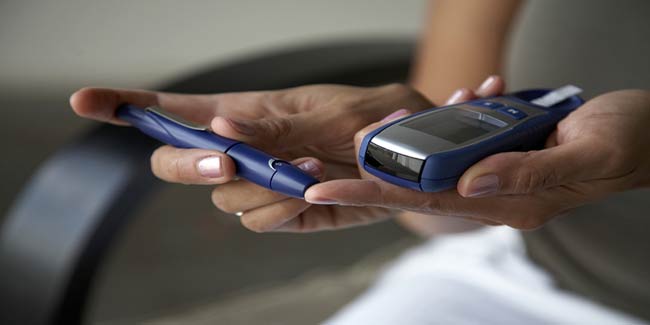
Diabetes is a dangerous disease and can give rise to many complications for a normal human being. When you are pregnant and you get diabetes things can be very bad, it can affect you and your unborn child in more than one way. How can you make your way through the storm of diabetes?
Table of Content:-
 Treatment of diabetes in pregnancy is essential to avoid complications during pregnancy and delivery. Diabetes in pregnancy increases the risk of complications both for the mother and baby. In addition to the control of blood sugar during pregnancy, keeping a close eye on your future blood sugar levels is also important.
Treatment of diabetes in pregnancy is essential to avoid complications during pregnancy and delivery. Diabetes in pregnancy increases the risk of complications both for the mother and baby. In addition to the control of blood sugar during pregnancy, keeping a close eye on your future blood sugar levels is also important.
Treatment strategies for diabetes in pregnancy include:
Monitoring blood sugar levels
Monitoring blood glucose levels at home is important especially as your pregnancy advances. Your doctor may advice you to check blood sugar levels several times a day (such as first thing in the morning and after meals) and record the readings. This is done to ensure that the level stays within a healthy range. When you go for follow-ups, your doctor can decide based on the reading if your diet, weight gain and other lifestyle changes are enough to keep blood sugar levels under control or if insulin is needed. Your doctor can teach you how to use the glucose metre to check the blood sugar level with a drop of blood from your finger using a small needle (lancet). Initially it may seem inconvenient and difficult, but with practice it becomes easier. Your blood sugar levels during labour and delivery will also be monitored and treated by your healthcare team.
Eating Healthy
Eating healthy (that is the right kinds and quantity of food) is a good way to control your blood sugar. Based on your weight before pregnancy, your doctor can advise regarding the appropriate diet to maintain healthy weight gain. Eating right can help prevent excessive weight gain, which increases the risk of complications. A healthy diet includes fruits, vegetables, whole grains foods (such as whole-grain bread and pasta and brown rice) and low fat dairy products. These foods contain fibre, minerals and vitamins and are low in fat and calories. Intake of highly refined carbohydrates, including sweets, processed foods should be limited. Your doctor or dietician can make a meal plan based on your current weight, desired weight gain in pregnancy, blood sugar level, exercise habits, and food preferences.
Exercise
Regular physical activity is important in pregnancy. Regular exercise improves insulin resistance and blood sugar control. Besides these, regular exercise can also improve some common problems of pregnancy such as back pain, muscle cramps, swelling, constipation and trouble sleeping and prepare you for the labour and delivery. Any kind of regular physical activity or exercise for 20- 30 minutes on most days of the week is considered adequate. Consult your doctor for exercises and follow his recommendations regarding exercise.
Medication
Many women with diabetes during pregnancy may need medications in addition to dietary changes and regular exercise. You will be given insulin injections as oral hypoglycaemic drugs are not considered to be safe for pregnant women. About 10 to 20 percent women with gestational diabetes need insulin to maintain their blood sugar levels. The aim of insulin will be to keep your blood sugar levels as normal as possible. The exact sugar reading on which insulin injection has to be started is not clear. Hence it is started based on clinical examination, findings and sugar readings.
Breastfeeding your baby
Breastfeeding if possible is good in women who have gestational diabetes as it may help you reach your post-pregnancy weight goals sooner and avoid type 2 diabetes later in life. It may probably also decrease the risk of obesity and type 2 diabetes later in your baby.
Follow-up blood sugar checks
The blood sugar levels tend to normalise rapidly after delivery in most women with gestational diabetes. But in some it can remain high even after delivery. Regular monitoring of the blood sugar levels till it normalises is generally recommended as it can also help to titrate your medications as required. You should follow your doctor’s recommendations regarding diet, exercise and medications to rapidly gain control of your blood sugar.
Most women with gestational diabetes can have a normal pregnancy and can deliver a healthy baby if their blood sugar levels remain well controlled during pregnancy. So it’s important to follow your doctor’s recommendations regarding, diet, exercise, and weight gain and insulin injections.
How we keep this article up to date:
We work with experts and keep a close eye on the latest in health and wellness. Whenever there is a new research or helpful information, we update our articles with accurate and useful advice.
Current Version
